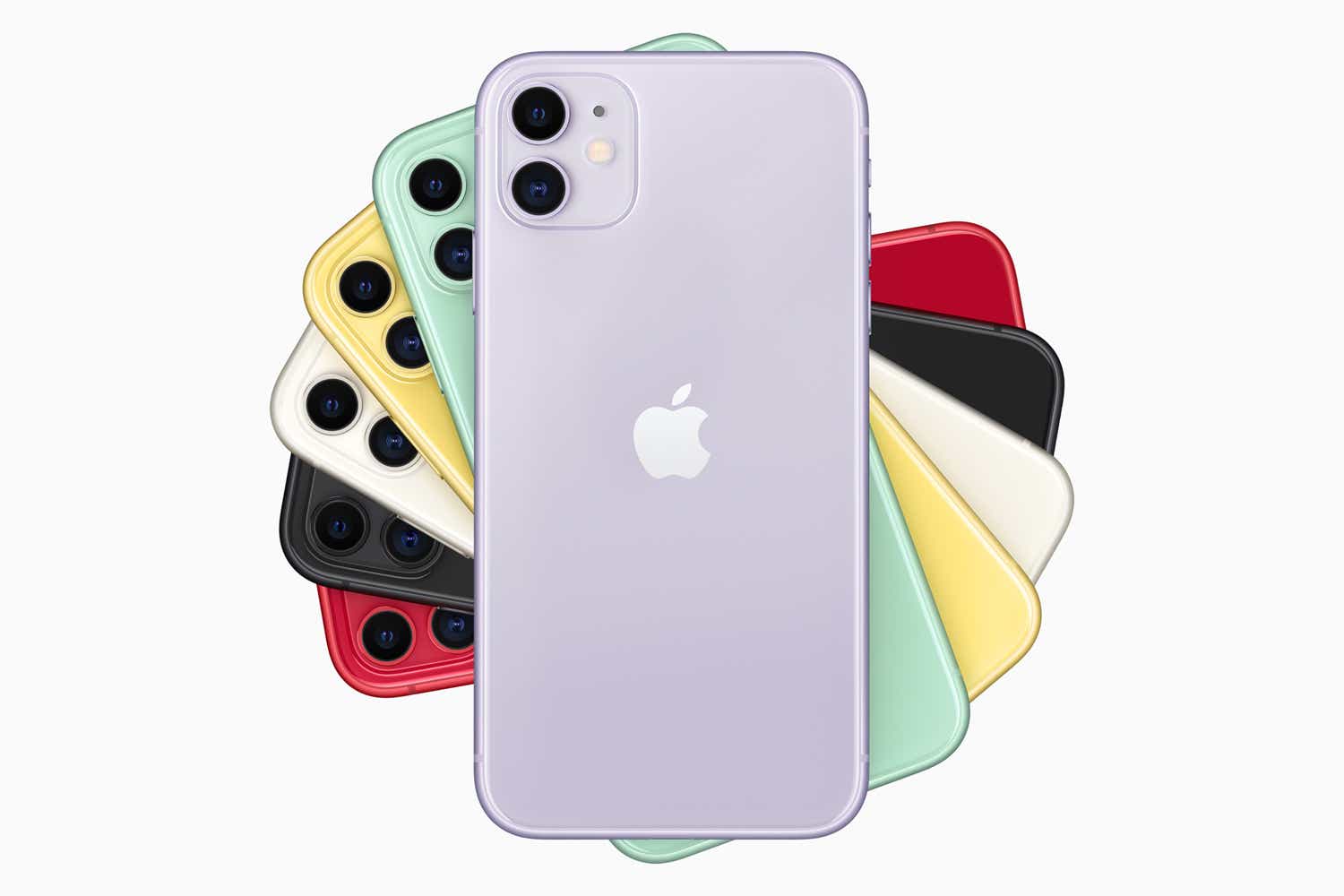Every year, Apple unveils the latest iPhone models just before the holiday shopping season starts. And the temptation to treat yourself to a new iPhone is strong. But there’s no rule that says you need to buy the iPhone 13 when you are ready to make the jump.
That’s usually the temptation if you’re rocking an old model, like an iPhone 8 or even an iPhone 6S, but Apple also sells another handset with an “all-screen” design and a great camera. It doesn’t have all of the latest technology, but you can buy one for a full $300 less than the iPhone 13, which is a significant savings.
Let’s compare the design, camera and battery life of the iPhone 11 and iPhone 13 to give you more tools to decide what your next iPhone purchase will look like.
iPhone 11 vs iPhone 13: Specs
The iPhone 11 was released in September 2019. With a new dual camera, faster speed than the previous iPhone XR model and at a lower starting price, it was a significant upgrade over its predecessor. Two years later, September’s release of the iPhone 13 has set a new high bar for Apple, with the A15 Bionic processor. But the iPhone 11 is enough phone for most people upgrading from an older model.
| iPhone 11 | iPhone 13 | |
|---|---|---|
| Display | 6.1‑inch Liquid Retina HD LCD Multi-Touch display with IPS technology 1792×828‑pixel resolution at 326 ppi | 6.1 inch Super Retina XDR OLED 2532×1170 pixel resolution at 460 ppi |
| Dimensions | 5.94 x 2.98 x 0.33 inches | 5.78 x 2.82 x 0.30 inches |
| Weight | 6.84 ounces | 6.14 ounces |
| Colors | Black, Green, Purple, Product(RED), White, Yellow | Blue, Midnight, Pink, Product(RED), Starlight |
| Processor | A13 Bionic | A15 Bionic |
| Storage | 64GB/128GB | 128GB/256GB/512GB |
| Rear Camera | Dual 12MP Wide: ƒ/1.8 aperture Ultra Wide: ƒ/2.4 aperture Optical image stabilization Next-generation Smart HDR for photos | Dual 12MP Wide: ƒ/1.6 aperture Ultra Wide: ƒ/2.4 aperture Sensor-shift optical image stabilization Smart HDR 4 for photos Photographic Styles |
| Front Camera | 12MP TrueDepth f/2.2 aperture Next-generation Smart HDR for photos | 12MP TrueDepth f/2.2 aperture Cinematic mode for videos Smart HDR 4 for photos Photographic Styles |
| Video Recording | 4K video recording at 24 fps, 25 fps, 30 fps or 60 fps | 4K video recording at 24 fps, 30 fps or 60 fps HDR Dolby Vision up to 60fps Night mode Time-lapse Cinematic Mode |
| Biometric Security | Face ID | Face ID |
| Connectivity | Wi-Fi 6 4G LTE Bluetooth 5.0 Lightning | Wi-Fi 6 5G LTE Bluetooth 5.0 Lightning |
| Waterproofing | IP68 | IP68 |
| SIM | nano SIM, eSIM | nano SIM, eSim Dual eSIM |
| Wireless Charging | Qi | Qi, MagSafe |
| Battery Life | 17 hours video playback 10 hours video streaming 65 hours audio playback | 19 hours video playback 15 hours video streaming 75 hours audio playback |
| Price | $499/$549 | $799/$899/$1,099 |
iphone 11
iPhone 13
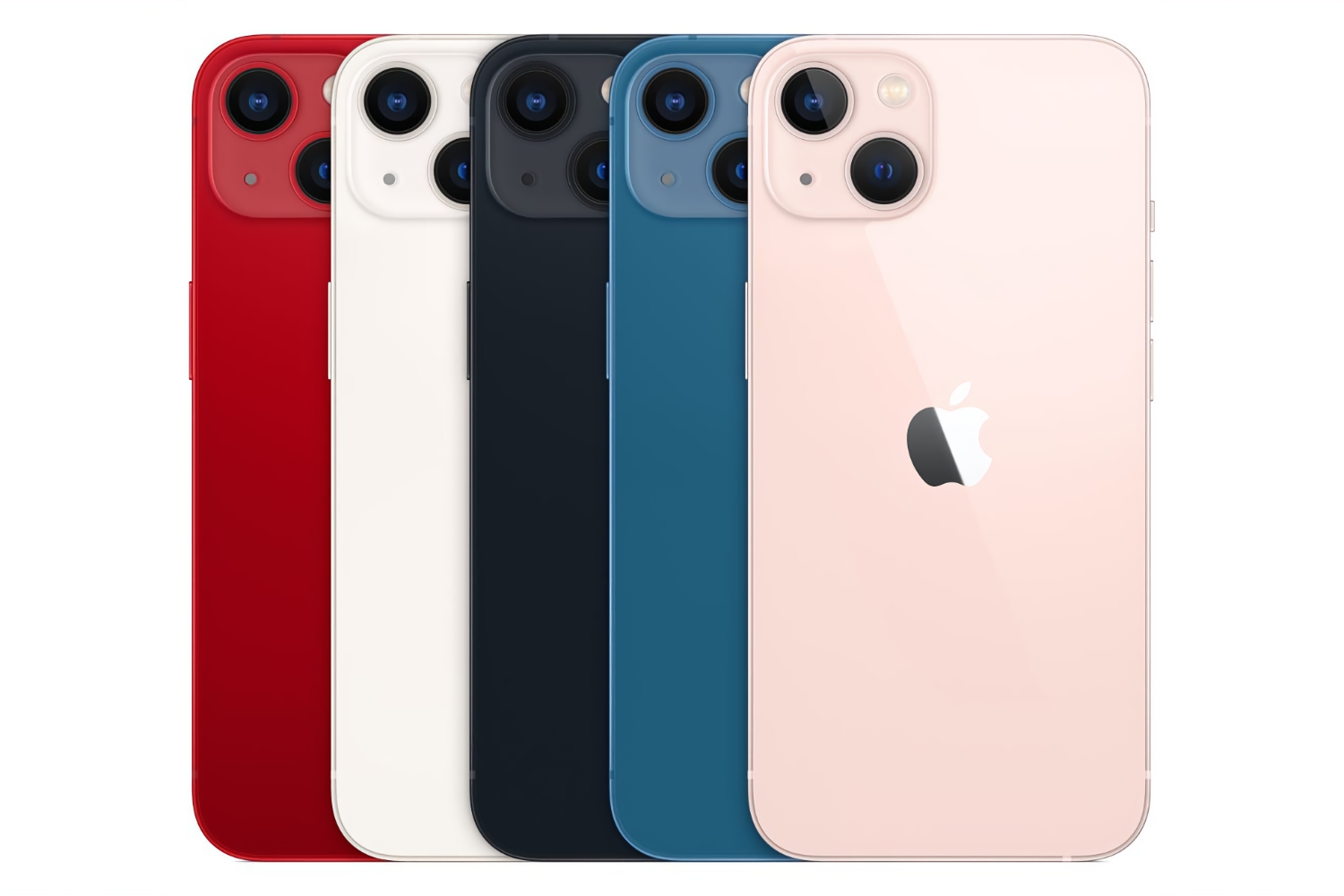 https://b2c-contenthub.com/wp-content/uploads/2021/09/iphone-13.jpg?resize=300%2C200&quality=50&strip=all 300w, https://b2c-contenthub.com/wp-content/uploads/2021/09/iphone-13.jpg?resize=768%2C512&quality=50&strip=all 768w, https://b2c-contenthub.com/wp-content/uploads/2021/09/iphone-13.jpg?resize=1200%2C800&quality=50&strip=all 1200w, https://b2c-contenthub.com/wp-content/uploads/2021/09/iphone-13.jpg?resize=1240%2C826&quality=50&strip=all 1240w, https://b2c-contenthub.com/wp-content/uploads/2021/09/iphone-13.jpg?resize=150%2C100&quality=50&strip=all 150w" sizes="(max-width: 300px) 100vw, 300px" />
https://b2c-contenthub.com/wp-content/uploads/2021/09/iphone-13.jpg?resize=300%2C200&quality=50&strip=all 300w, https://b2c-contenthub.com/wp-content/uploads/2021/09/iphone-13.jpg?resize=768%2C512&quality=50&strip=all 768w, https://b2c-contenthub.com/wp-content/uploads/2021/09/iphone-13.jpg?resize=1200%2C800&quality=50&strip=all 1200w, https://b2c-contenthub.com/wp-content/uploads/2021/09/iphone-13.jpg?resize=1240%2C826&quality=50&strip=all 1240w, https://b2c-contenthub.com/wp-content/uploads/2021/09/iphone-13.jpg?resize=150%2C100&quality=50&strip=all 150w" sizes="(max-width: 300px) 100vw, 300px" />iPhone 11 vs iPhone 13: Design and display
The iPhone 11 and iPhone 13 both have a 6.1-inch screen, with an “all-screen” design, but they’re not quite the same. The iPhone 11 is an LCD while the iPhone 13 has an OLED display with crisper colors and deeper blacks. It also has the decidedly superhero-sounding Ceramic Shield for extra protection from butterfingers.
There are a couple of other visual tells as to the model of phone you have. First, the iPhone 13 has Apple’s newer design with flat edges. The iPhone 13 also has a smaller notch. While both phones have a dual-camera array in the top left corner, the iPhone 11’s two lenses on the rear camera bump are placed vertically, while the iPhone 13’s are diagonal (see the Cameras section below).
The iPhone 11 weighs 6.84 ounces and the iPhone 13 weighs 6.14 ounces, so there isn’t a huge weight difference. They’re also fairly similarly sized. The iPhone 11 is 5.94 inches by 2.98 inches by 0.33 inches, which is just a tad bigger than the iPhone 13’s dimensions of 5.78 inches by 2.82 inches by 0.30 inches.
If color happens to be a major factor in your decision-making, you have six choices with the iPhone 11 as compared with five choices for the iPhone 13. Each has a Product(RED) selection, but they’re slightly different hues of the same color. The iPhone 13 also offers colors with names that could use some description: Midnight, which is black with a slightly bluish tint; and Starlight, which is silver with hints of gold.
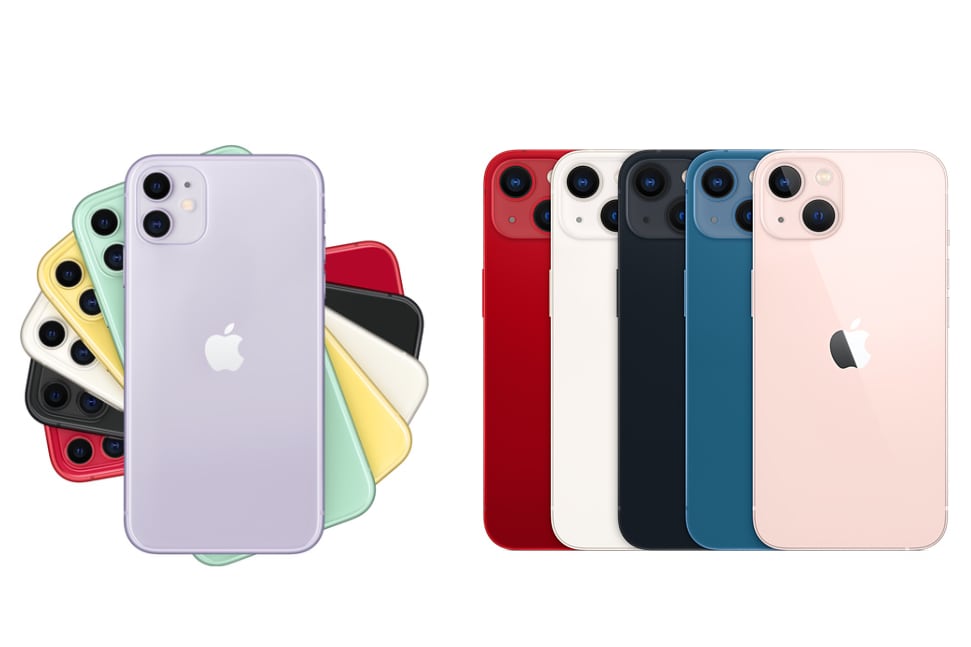 https://b2c-contenthub.com/wp-content/uploads/2021/10/iphone-11-iphone-13-colors.jpg?resize=300%2C200&quality=50&strip=all 300w, https://b2c-contenthub.com/wp-content/uploads/2021/10/iphone-11-iphone-13-colors.jpg?resize=768%2C512&quality=50&strip=all 768w, https://b2c-contenthub.com/wp-content/uploads/2021/10/iphone-11-iphone-13-colors.jpg?resize=150%2C100&quality=50&strip=all 150w" width="971" height="647" sizes="(max-width: 971px) 100vw, 971px" />
https://b2c-contenthub.com/wp-content/uploads/2021/10/iphone-11-iphone-13-colors.jpg?resize=300%2C200&quality=50&strip=all 300w, https://b2c-contenthub.com/wp-content/uploads/2021/10/iphone-11-iphone-13-colors.jpg?resize=768%2C512&quality=50&strip=all 768w, https://b2c-contenthub.com/wp-content/uploads/2021/10/iphone-11-iphone-13-colors.jpg?resize=150%2C100&quality=50&strip=all 150w" width="971" height="647" sizes="(max-width: 971px) 100vw, 971px" />The iPhone 11 (left) is available in six colors, while the iPhone 13 (right) have five choices.
Apple
Our advice: The weight and size are almost the same between the iPhone 11 and the iPhone 13, so picking based on size is basically a wash. The OLED display of the iPhone 13 is definitely a nice upgrade, but it might not be worth $300. Are you accident prone or you often drop your iPhone? That influences your decision. You might consider having the Ceramic Shield protection of the iPhone 13 instead of the glass-fronted iPhone 11.
If it comes down to the big design aesthetic of color, the iPhone 11’s Green and Purple stand out more than the iPhone 13’s somewhat muted offerings. But if you have a fun and funky case on your phone, you’ll add a layer of protection and you’ll rarely see the colors anyway.
iPhone 11 vs iPhone 13: Cameras
All iPhones are great for taking casual photos and videos, but if you are particularly passionate about making this kind of media or use the camera for professional purposes, the new features in the iPhone 13 leave the iPhone 11 and, to some extent, the iPhone 12 in the dust. The aforementioned change in the rear camera lens placement is to accommodate a new sensor-shift optical image stabilization system that the iPhone 11 doesn’t have, so your images will be steadier and sharper. Both phones have Apple’s excellent Night mode for low-light shots, but the iPhone 13’s is a bit better due to its upgraded camera sensors.
That $300 difference between the iPhone 11 and iPhone 13 also means access to the newest features, like the shallow depth of field you can create for drama in Cinematic mode and the color tone-editing Photographic Styles.
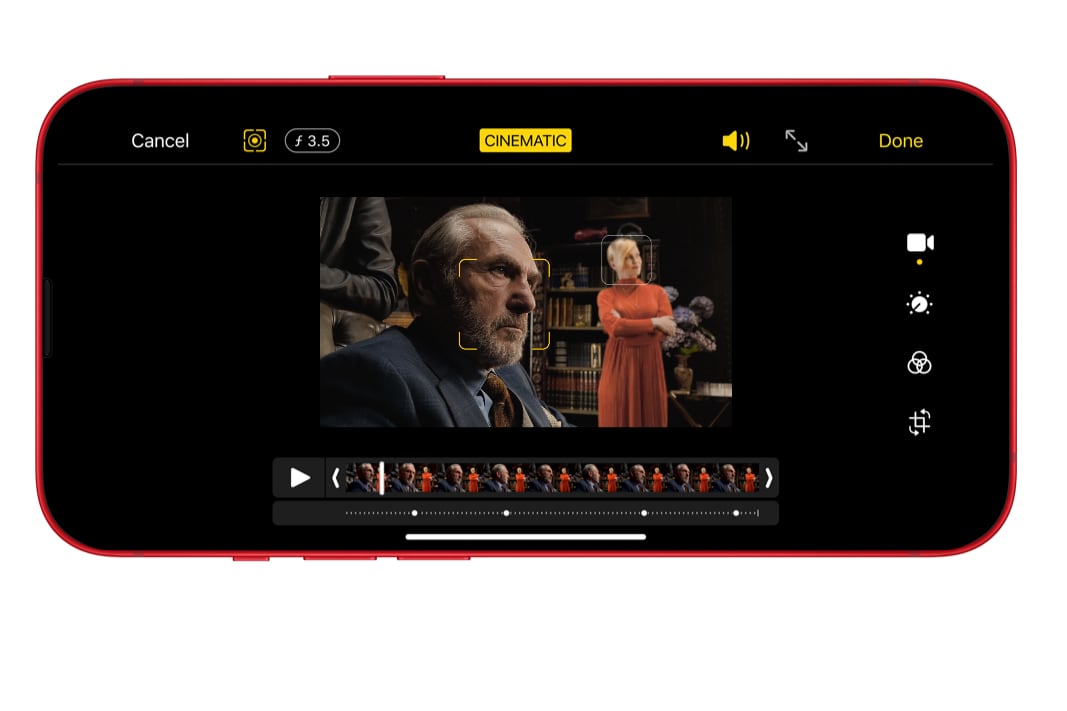 https://b2c-contenthub.com/wp-content/uploads/2021/09/iphone-13-cinematic-mode.jpg?resize=300%2C200&quality=50&strip=all 300w, https://b2c-contenthub.com/wp-content/uploads/2021/09/iphone-13-cinematic-mode.jpg?resize=768%2C512&quality=50&strip=all 768w, https://b2c-contenthub.com/wp-content/uploads/2021/09/iphone-13-cinematic-mode.jpg?resize=150%2C100&quality=50&strip=all 150w" width="1024" height="682" sizes="(max-width: 1024px) 100vw, 1024px" />
https://b2c-contenthub.com/wp-content/uploads/2021/09/iphone-13-cinematic-mode.jpg?resize=300%2C200&quality=50&strip=all 300w, https://b2c-contenthub.com/wp-content/uploads/2021/09/iphone-13-cinematic-mode.jpg?resize=768%2C512&quality=50&strip=all 768w, https://b2c-contenthub.com/wp-content/uploads/2021/09/iphone-13-cinematic-mode.jpg?resize=150%2C100&quality=50&strip=all 150w" width="1024" height="682" sizes="(max-width: 1024px) 100vw, 1024px" />The iPhone 13 has a new Cinematic mode for video recording that’s nice to have, especially if you’re into creative tools. But it’s not a must-have feature.
Apple
Our advice: If you don’t really care about super artsy photos and long videos, you will most likely be happy with the perfectly functional technology of the iPhone 11. But if these are strong areas of interest and you’re looking for features that can help you grow into your shooting and editing skills, it’s worth thinking about investing in the iPhone 13.
iPhone 11 vs iPhone 13: Performance and battery life
The iPhone 11 has Apple’s A13 Bionic chip while the iPhone 13 uses the A15. Both are plenty fast and capable of running all of the new features in iOS 15. Power users will notice the difference in speed, but for most people the iPhone 11 will be more than good enough.
Apple’s specs for the iPhone 13 offer 19 hours of video playback as compared with 17 hours in the iPhone 11. The iPhone 13 also can last for up to 75 hours of audio playback, which is 10 hours more than the iPhone 11. In our real-world testing, the iPhone 13 offered a significant improvement in battery life over the iPhone 12. Both iPhones are compatible with Qi wireless charging, and the iPhone 13 also has MagSafe, though you’ll need to buy a separate charger.
Our pick: Even with a few hours less average battery life, the iPhone 11 will probably not get a non-hardcore user through the day and evening. But if you’re a professional or have pro-level aspirations to use your device to document real or constructed life, or you simply just want to listen to a whole lot of music, the boost in time you get from the iPhone 13 is pretty key.
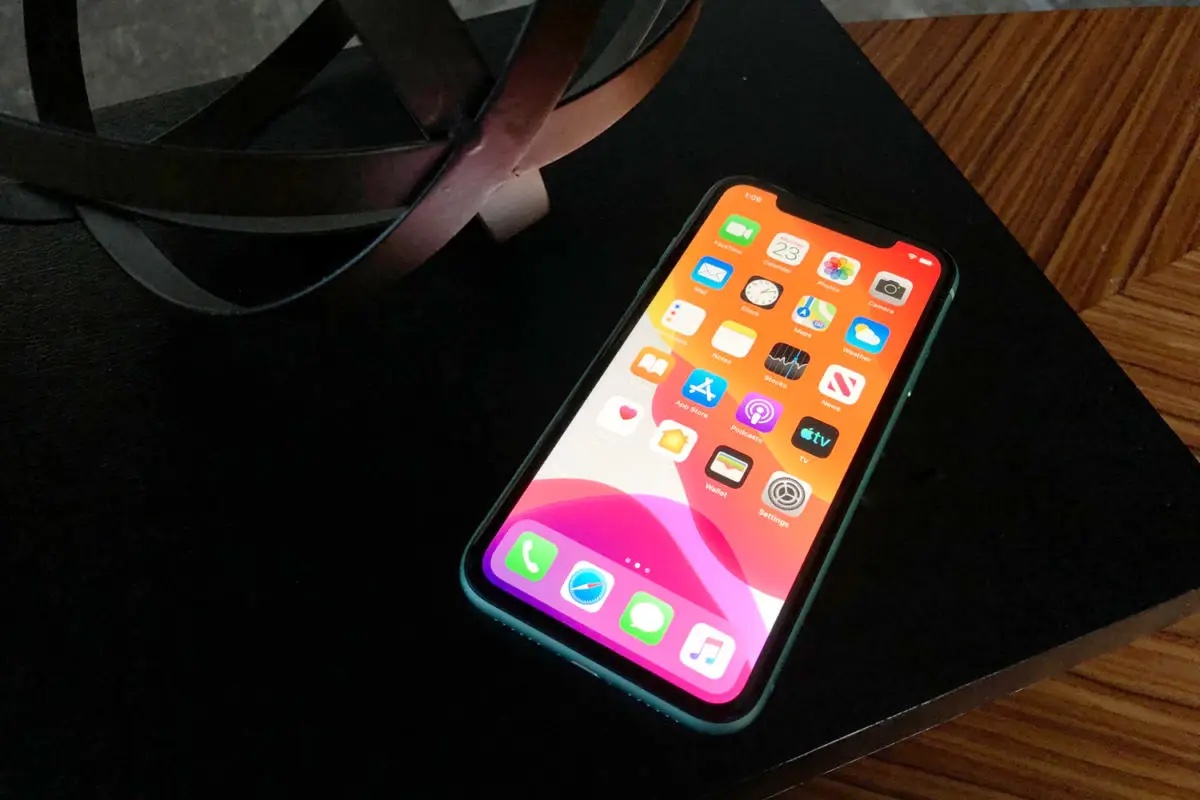 https://b2c-contenthub.com/wp-content/uploads/2021/11/iphone-11.jpg?resize=300%2C200&quality=50&strip=all 300w, https://b2c-contenthub.com/wp-content/uploads/2021/11/iphone-11.jpg?resize=768%2C512&quality=50&strip=all 768w, https://b2c-contenthub.com/wp-content/uploads/2021/11/iphone-11.jpg?resize=150%2C100&quality=50&strip=all 150w" width="1024" height="683" sizes="(max-width: 1024px) 100vw, 1024px" />
https://b2c-contenthub.com/wp-content/uploads/2021/11/iphone-11.jpg?resize=300%2C200&quality=50&strip=all 300w, https://b2c-contenthub.com/wp-content/uploads/2021/11/iphone-11.jpg?resize=768%2C512&quality=50&strip=all 768w, https://b2c-contenthub.com/wp-content/uploads/2021/11/iphone-11.jpg?resize=150%2C100&quality=50&strip=all 150w" width="1024" height="683" sizes="(max-width: 1024px) 100vw, 1024px" />The iPhone 11 has a modern design and a fantastic processor.
Roman Loyola/IDG
iPhone 11 vs iPhone 13: Conclusion
Despite the time-warping impressions easily offered by a global pandemic, 2019 was not actually that long ago, and the iPhone 11 is a more than capable mobile device to help you get through the functional duties of your life as well as assist in any digitally creative notions. If you’re looking for a pro-level phone with lots of room to grow into—both literally and figuratively—the iPhone 13 will keep you more in pace with the times and what’s to come, and you probably have one already. But if you’re trying to choose between the two, you’re probably looking for a bargain. And the $499 iPhone 11 is a great one.


